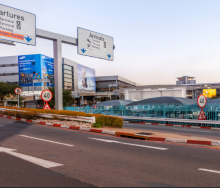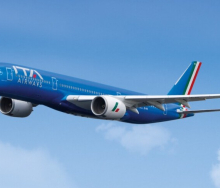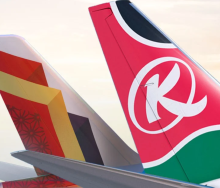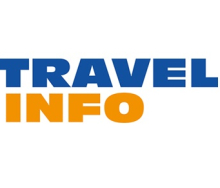B-BBEE – fronting comes under the spotlight
THE Broad-Based Black
Economic Empowerment
Commission has made
findings against several
companies that do not
comply with the BroadBased Black Economic
Empowerment Act and has
initiated a remediation policy.
Business Day reported
in April that dozens of
companies had received
letters from the Commission
informing them of the need
to rectify their ownership
structure and undergo
reverification of their BEE
status or face investigation
for fronting.
The B-BBEE Commission
was set up to oversee,
supervise and promote
adherence to the Act.
The B-BBEE mandate
Part of its mandate includes
investigating either on its
own initiative or in response
to complaints received, any
matter concerning broadbased black economic
empowerment.
Commissioner Zodwa Ntuli
told TNW that a number of
companies were investigated
last year. She said that
where noncompliance was
identified, the Commission
had given the entities an
opportunity to remedy the
noncompliance issues.
Should the entities fail
to remedy, they could face
prosecution, she said.
Companies that are found
guilty of B-BBEE fronting can
be fined up to 10% of annual
turnover and individuals can
be jailed for up to 10 years.
Fronting came into the
spotlight last year when a
company was accused of
using the name of a black
man, now deceased, so
that the company could
get tenders by seeming to
comply with BEE regulations.
According to the man’s
family, he had been
employed as a driver for a
stationer, to get deals worth
millions of rands.
The man reportedly sold
his shares for R100 000 to
his boss, but the family is
challenging this transaction
in court, claiming that he was
unaware that he owned any
shares until he was close
to death, when the company
gave him the runaround.
What constitutes
fronting?
The Department of Trade
and Industry defines
fronting as a deliberate
circumvention or attempted
circumvention of the
B-BBEE Act and the Codes.
“Fronting commonly involves
reliance on data or claims
of compliance based on
misrepresentations of facts,
whether made by the party
claiming compliance or by
any other person,” it states.
It includes ‘windowdressing’, ‘benefit diversion’
and ‘opportunistic
intermediaries’ as practices
that constitute fronting.
Examples are introducing
or appointing black
people to an enterprise
but inhibiting them from
substantially participating in
its core activities; initiatives
where the economic benefits
received as a result of
the B-BBEE status do not
flow to black people; and
enterprises that have
concluded agreements
with other enterprises with
a view to leveraging the
intermediary's favourable
B-BBEE status.
Trusts taken to task
The B-BBEE Commission
is required to maintain
a register of B-BBEE
transactions above
R25 million. However,
the legitimacy of many of
these transactions has
come into question.
Zodwa told TNW that
all transactions from
2014 onwards needed
to be registered with the
Commission.
She added that
the majority of these
transactions had been
assessed. Of the 341
transactions that were
assessed, about a third
related to ownership
structures that included
trusts and broad-based
schemes.
“The Commission has found
that where there are broadbased schemes and trusts,
most of these do not meet
the test for ownership.”
She added that these
entities had received letters
from the Commission,
indicating where the
concerns were and giving
the entity an opportunity to
remedy these concerns.
Some of the entities had
already been referred for
remedial action as far back
as March last year but had
not taken any action yet,
said Zodwa.
While the Business Day
article lists the Batho
Batho Trust (which owns
47,5% of Thebe Investment
Corporation) among the
trusts that could be affected,
the Thebe Investment
Corporation said its
ownership had not been
called into question.
To date, Thebe, Batho
Batho Trust nor any of the
Thebe shareholders have
ever received any formal or
informal communication from
the B-BBEE Commissioner,
the Department of Trade
and Industry or any other
regulator challenging the
legality or otherwise of
the Thebe shareholding
structure.
The corporation also
clarified that it had submitted
to the B-BBEE Commission
all its major B-BBEE
transactions and these
had been approved by the
Commission.
Zodwa also told TNW
that at this stage, the
Commission had not
released the names of the
trusts under review and the
entities listed in the Business
Day article were based on
speculation.
New venture will connect industry with SMEs
AT THE beginning of the
month, Tourism Minister
Derek Hanekom unveiled
Jurni – a public-private
venture seeking to
transform South Africa’s
travel and tourism
industry.
Jurni is a travel
and tourism data
management company
that will deliver tourism
data giving businesses
insights; develop a
booking tool that will
improve access of small
and medium tourism
enterprises to the global
travel market; and
produce a visitor portal
to showcase the South
African tourism product.
The SMME booking
tool and the visitor
portal are expected to
be developed with the
tourism sector’s input
over the coming months.
Jurni is the result of
the National Tourism
Visitor Information
System initiative,
which was launched
by Amadeus IT in
conjunction with the
Department of Tourism
and the Thebe Tourism
Group at Indaba last
year.
The investment by
Amadeus was intended
to respond to the real
needs of South Africa’s
travel and tourism
industry. “Amadeus
felt that an industry
alliance including key
stakeholders such
as South Africa’s
Department of Tourism
would ensure this
overarching goal
was met,” said Andy
Hedley, md of Amadeus
Southern Africa.
Businesses play their part in transforming the industry
THE lack of skills,
development and training is
widely cited as the biggest
challenge holding back
industry transformation.
Commenting on the
difficulty faced by the
industry in achieving the
desired B-BBEE certification,
Morné du Preez, ceo of
Tourvest Travel Services,
says: “The challenge is
in finding high-calibre
staff while still working
toward the highest level
of B-BBEE status, and
developing processes that
are sustainable and make a
long-term difference within
the community.” Tourvest
recently achieved Level 1
B-BBEE status.
Recognising this skills
gap, Mladen Lukic, gm of
Travel Counsellors SA, says
the company has tied its
transformation strategy to
the launch of its academy,
which will take place later
this year.
The company completed
a B-BBEE transaction a
year ago, which required a
significant reconstruction
of the business. “Following
the restructure, our
empowerment partners own
51% of Travel Counsellors,”
says Mladen, adding
that 30% of total TC
shareholding is owned by
black women.
The two partners that
Travel Counsellors selected
are the Phakamani
Foundation Trust and
the Support Teacher
Empowerment Trust.
Mladen says the company
is in the process of making
this partnership more
meaningful. “A lot of the
B-BBEE requirements stop
at the restructuring of the
business,” he says. “It
is often limited and only
accomplished through
a complex shareholding
ownership scheme.
“This is partly problematic
because it is prescribed
in the legislation, but it
doesn’t benefit the people
who need it.”
Mladen says, for this
reason, Travel Counsellors
chose partners that are
able to take advantage of
the financial benefit but also
deliver the funding to those
that need it. “We didn’t
want to partner with an
existing B-BBEE partnership
that has grown into an
investment giant. All too
often B-BBEE transactions
are with known entities that
have now become almost
tier-one investment
organisations.”
Because Travel
Counsellors does not want
to stop with a structural
change to comply with
the prerequisites, Mladen
says the company is
following through with a
transformation map that
goes beyond this. “That is
where the introduction of
the academy comes in.”
He says that within the
ITC space, one of the
challenges is the need to
provide all customers with
a consistent and high level
of service.
With this in mind, the
academy is targeting people
who are not beginners,
but rather entrepreneurs
who are not typical entrylevel academy goers, says
Mladen.
Supporting SMEs
Wally Gaynor, ceo of
Club Travel, says the
Club Travel ITC business
model is an incubator for
small independent travel
businesses, regardless
of race. He adds that the
majority of Club’s ITCs are
women, and a sizeable
amount are previously
disadvantaged women.
“The barrier to entry is low
in that they only need five
years of experience working
on one of the GDS systems
in the leisure or corporate
travel space, and have a
client base or the ability
to grow a client base,” he
says.
Kananelo Makhetha, ceo
of Club Travel Corporate,
adds that Club Travel
assists its B-BBEE incubator
partners to acquire and
grow new clients by
providing assistance with
RFP responses, shortlist
presentations and access
to its suite of technology
products and supplier deals.
“We hold their hands and
empower them with client
servicing and retention
skills,” he says.
Lidia Folli, BidTravel
ceo, highlights some of
the initiatives within the
BidTravel stable: “Rennies
has been running the Red
Stamp programme for
many years as its supplier
development initiative; CWT
supports a start-up training
academy; and BCD supports
an initiative where young
girls are being introduced to
technology and undertake
practical experience in our
offices.”
The Red Stamp Club
programme supports the
development of exempted
micro-enterprises and
qualifying small enterprises
in the tourism industry. To
do this, it incorporates an
accommodation component
featuring guest houses,
bed & breakfasts and
boutique hotels, as well
as a transport component
featuring shuttle and
transfer services.
SME struggles
Within the travel industry,
the ability for black-owned
businesses to access the
market and secure adequate
working capital to operate
a business at scale remain
key challenges. Dhiren Soni,
director of Munlin Travel,
says while certification is
not a challenge for 100%
black-owned businesses,
the challenge is financial
sustainability and the
ability to accelerate growth.
“This is restricted by cash
flow and human resource
capacity.”
Another challenge is that
suppliers expect the SME to
contract with them on the
same terms and conditions
as larger TMCs. “The SME
does not have the leverage,
positioning and brand
equity of a larger TMC when
negotiating terms,” says
Dhiren.
Finally, cashflow is always
a challenge for SMEs, who
may be expected to carry
costs upfront but face a
delay in payment, adding
more strain.
Plan to plug procurement gaps
THE travel industry faces
a significant challenge
when it comes to B-BBEE
procurement as a result of a
shortage of SMEs that they
can book for their clients.
At the same time, big
international suppliers do
not subscribe to B-BBEE.
“Most of our big suppliers
are international suppliers
and they don’t subscribe
to B-BBEE,” says Dinesh
Naidoo, group operations
director of SWG and Asata
president. He points out
that the bulk of what agents
sell is air tickets, so this
significantly hinders them
when it comes to B-BBEE
procurement.
Asata is hoping to
establish a training platform
to train up SMEs so that
they can deliver products
and services to TMCs and
their clients.
“We have recognised
that when you look at
procurement, one of
the gaps that exist in
transformation is that there
is not enough procurement
happening from a TMC
delivering products and
services of previously
disadvantaged or SME
businesses,” says Asata
ceo, Otto de Vries.
“Within the travel sector,
a major barrier to entry is
the distribution network,”
he says, adding that
distribution relationships are
well established.
“What further hinders
this process is a lack
of specialist knowledge
required to operate in the
industry, including poor
marketing experience, lack
of business understanding,
and lack of knowledge
about the travel industry
and how it operates,”
he says. “This in turn
leads to these suppliers
not being able to honour
availability requirements or
agreements, and providing
unpredictable or substandard service, poor
quality product and an
unreliable booking process.
“We have identified this
as an opportunity,” says
Otto. Asata’s proposal to
establish a training platform
aims to open up this
channel, making SMEs more
accessible and equipping
them to deliver within the
travel sector.
The maths is simple...
Flight Centre Travel Group
md, Andrew Stark, breaks
down the link between the
supply chain and B-BBEE
scores. Flight Centre’s
corporate travel brands are
B-BBEE Level 1. “A Level
1 score offers benefits
to everyone in our supply
chain, both financially and
concerning increasing
their own BEE scores.
Companies that procure
only from Level 1 suppliers
spend less but can claim
more. When a potential
customer is in the process
of choosing a supplier, their
own BEE level is affected
by the supplier’s level. And
the higher the supplier’s
level, the more the
customer can claim toward
their procurement spend.
“It is simple maths: if
clients choose a BEE
Level 6 company, only
60c out of every rand they
spend will count toward
their own BEE scorecard.
But, as a Level 1 company,
for every R1 our customers
spend with us, they can
claim R1,35 against
their own preferential
procurement scoring.”
Tit-for-tat visas plague corporates
APPLICATIONS for visas in a
number of African countries
continue to be problematic
for South African travellers,
and there are also frequent
bottlenecks when it comes
to processing times and
securing appointments for
other countries.
Agents cite the Angolan
and Nigerian embassies
as particularly problematic
when it comes to visa
applications, with many
attributing the situation to a
tit-for-tat scenario because
of the difficulties nationals
from these countries face
when applying for visas to
SA. Another example given
by an agent is the Egyptian
Embassy taking 21 days to
process a visa application
for South Africans because
this is the processing time
required for visas to SA.
“We should be directing
questions to our own
Department of Home
Affairs, which is causing the
difficulties,” one agent said.
“Many meetings in
Africa can happen quite
spontaneously and so trying
to get a visa at the last
minute (or even with a few
weeks to spare) can be a
challenge,” says founder of
the African Business Travel
Association, Monique Swart.
Oz Desai, gm of Corporate
Traveller South Africa, also
highlights visa applications
as one of the challenges
for travel on the continent.
He says while many
South African companies
are actively exploring
opportunities on the
continent, visa openness
and affordable airfares are
needed to sustain growth.
“A more open visa regime in
Africa would make it easier
to do business quickly
and affordably, promoting
entrepreneurship, diversifying
economies, adding value, and
attracting investment and
even much-needed skills.”
A visa consultant
who asked to remain
anonymous said that getting
appointments from the US
Embassy was particularly
difficult and needed to be
secured about a month in
advance. The consultant
also named Spain and
Greece among the Schengen
countries that had the most
stringent requirements when
it came to documentation.
Double check those dates
Agents on OpenJaw
recently highlighted that
while some Schengen
states issue visas from
the date of application,
others issue the visa from
date of arrival. This has
affected clients taking
connecting flights that
depart a day before their
scheduled arrival date.
One agent cited the case
of a client arriving in
Germany two days after
departing South Africa.
The client was denied
boarding in Dubai, where
they had to overnight, only
being allowed to board
a flight on the day of the
visa.
To the point
SWG’s Dinesh Naidoo says the Tomsa levy is putting the travel industry at a disadvantage. In terms
of the B-BBEE charter, businesses score points toward their B-BBEE status for collecting the Tomsa
levy. However, Dinesh points out that, while this levy is collected by many accommodation providers,
agents are not in a position to collect the levy directly, and do so indirectly. Agents are effectively
penalised for the points they would have accrued by the levy directly. Dinesh says Asata is engaging
with the TBCSA to see if there is a way that travel agents can contribute to the Tomsa levy.
Suppliers obstruct customer service
TRAVEL suppliers are
increasingly inserting
themselves between the
relationship between agents
and their customers, to the
detriment of customer service.
Tracy Teichmann, manager
of Sure Adcocks Travel, says
some suppliers have started
calling on corporates directly,
offering them negotiated rates.
“Either they don’t know who
the corporate is booking with,
or they don’t care.”
The result, says Tracy, is
not just that the TMC is left
out of the transaction, losing
their commission, but also
that it was prevented from
offering their clients a choice
of suppliers. She points out
that while a supplier may
offer a corporate better rates
than another supplier, this is
often with different terms and
conditions, which may cost the
corporate more in the long run.
Mladen Lukic of Travel
Counsellors, says one of the
requirements for agents to
deliver the best service to their
clients is a relationship with
suppliers that goes beyond the
transaction, but this is lacking.
“The majority of suppliers
are moving away from a
co-operative environment that
is available post transaction,”
says Mladen. “It is impossible,
with many airlines in particular,
to be able to service our
customers end to end.”
Mladen says a large part of
why corporates rely on TMCs
is to manage situations, but a
significant number of airlines
no longer allow TMCs to
engage on their customers’
behalf.
“We need to step in when
customers need to change
their itinerary details, when
there are cancellations,” he
says. “We find it is increasingly
difficult to be able to achieve
this meaningfully, because
suppliers are either reducing
our ability to do this and,
in a number of instances,
actually precluding us from
doing this.”
Mladen says some suppliers
even have clauses that
prevent agents from doing
this and that when it comes
to complaint handing, this is
often outsourced to a remote
division, even when the airline
has a presence in SA. “This
is often an electronic process
that does not allow for human
interaction.”
Card policies
Card payments continue to
be a challenge for agents,
despite an amendment to
Iata Resolution 890, which,
it was hoped, would see the
introduction of agency card
payments. Last year, the
resolution was amended to
allow for the acceptance of
agent credit cards as a BSP
form of payment. The caveat
is that this is subject to airline
approval.
A number of airlines have
subsequently notified the
industry that they will raise
ADMs for the unauthorised
use of agency cards.
This forces agencies to
issue tickets as cash and
carry the risk, says SWG’s
Dinesh Naidoo. He adds
that card policies vary from
airline to airline, with some
even insisting that corporate
travellers produce the card
used to purchase a ticket at
the airport.
Partnership offers more options on AF KLM, Delta
IN JANUARY, Delta Air
Lines and Air France
KLM expanded their
co-operation to include
Africa, encompassing joint
contracting and offering
more travel options from
South Africa with the
opportunity for combined
corporate fares.
“As part of our joint
venture agreement with Air
France KLM, customers
can now travel on fully
combinable routings using
AFKLDL on one ticket.
“And with one joint
corporate contract that
means far more travel
options using the three
airlines,” a spokesperson
from Delta told TNW.
Delta is also transitioning
its SME programme from
SkyBonus to BlueBiz in
South Africa.
BlueBiz is Air France
KLM’s loyalty programme
designed for small and
medium enterprises, of
which Kenya Airways is
also a partner.
Did you know?
Companies that have either a corporate contract with Air France
KLM and Delta, or a BlueBiz account (which includes Air France,
KLM, Delta and Kenya Airways), automatically qualify for Air France
KLM’s corporate benefits programme, with benefits that include more
flexible ticketing time limit; free full name change; free standard seat
selection; priority in customer care; and waitlist priority.
To the point
The B-BBEE Commission has advised entities and organs of state
to reject B-BBEE certificates that have been issued by verification
agencies or professionals who are not accredited by South African
National Accreditation Systems.
Oil and gas recovery spurs regional opportunities
TRAVEL to Mozambique and
Ghana from South Africa is
seeing growth on the back
of an increased investment
and recovery of the oil
and gas sector in these
countries.
This is according to
Luis Mata, Wings head of
Business Development for
Sub Saharan Africa.
Luis says SAA’s
partnership with Africa World
Airlines in Ghana, which will
see SAA establish a hub in
West Africa, enhancing its
network into the region, is
good news, especially as
Ghana will soon be one of
the commercial hubs on
the continent.
He says travel to West
Africa is a challenge. “Better
connections will also see a
lot of travellers taking more
direct flights and indirectly
this will increase the
chances of investment in
the region, he says.
Southern Africa continues
to dominate corporate travel
on the continent, according
to data released by Flight
Centre Travel Group’s
Corporate Traveller.
Oz Desai of Corporate
Traveller South Africa, points
out that while London
came out as the top city for
corporate traffic originating
in South Africa last year,
African cities make up the
rest of the top five.
The remaining top
corporate travel destinations
are, in order: Windhoek,
Gaborone, Livingstone and
Harare.
The results show
Africa is a robust and
growing business travel
destination for South African
companies,” says Oz.
“The stabilising of the
mining industry has driven
investment and accelerated
growth. Many South African
companies are still actively
exploring opportunities on
the continent.”
Book it!
Aha Hotels & Lodges offers packaged deals at discounted rates for business guests. For example, the
aha Kopanong Hotel & Conference Centre, in Gauteng’s East Rand, is currently offering day conference
packages from R385 per delegate. If more than 50% of delegates stay overnight at the hotel, special
rates of R955 per person and R595 per person are offered for bed and breakfast for single and
sharing respectively. The facility has undergone refurbishment, with renovations completed on its
reception area, lobby and bar.
New Air Mauritius product give pax more
AIR Mauritius’s A330-
900NEO entered
service recently, offering
passengers more space
and leg-room with aisle
access for every businessclass seat.
“Air Mauritius is the first
airline globally to operate
both the new-generation
Airbus A350-900 and the
Airbus A330-900NEO,”
says Carla da Silva, Air
Mauritius regional manager
for Southern Africa and
Latin America.
The new product also
offers passengers WiFi
connectivity on board
and new amenities and
exclusively selected menu
and beverage options.
Corporate hub
“Mauritius is becoming a
strong corporate hub and
now ranks 20th in the world
for ease of doing business,
based on the ‘World Bank
Doing Business Report,”
says Carla. She says in line
with economic growth of
the country, Air Mauritius
is investing largely in fleet
renewal and corporate
identity.
Did You know?
Air Mauritius offers corporate customers a two-piece luggage
allowance in both economy and business class as well as ticket
flexibility. The Kestrel Flyer frequent flyer programme offers
additional benefits that include business-class lounge access,
free flights, additional luggage and discounts with Air Mauritius
participating partners.
Industry makes strides toward seamless travel
FROM self-service check-in
to biometric boarding, travel
is becoming increasingly
seamless.
Last year, Doha’s Hamad
International Airport completed
the first major phase of its
Smart Airport programme,
which will enable Qatar Airways
to process more than 25%
of its passengers using selfservice check-in and bag drop.
Earlier this year, Delta Air
Lines and Virgin Atlantic
announced the launch of 18
self-service bag-drop units at
London Heathrow’s Terminal
3, available on all Delta- and
Virgin Atlantic-operated
flights to the United States.
Passengers flying on Delta Air
Lines can now use fingerprints
to board any Delta aircraft
at Reagan Washington
National Airport.
Bag drop services are
also gaining traction.
While the service is not yet
available in South Africa, Virgin
Atlantic has partnered with
baggage collection service
Airportr, enabling passengers
to check in luggage from
any central London address
and have it collected ahead
of travel.
Other Airportr partners
include British Airways and
easyJet.
A similar baggage collection
service is expected to launch
in South Africa soon.
BagPortr founder, Juan
van Rensburg, told TNW
that the service would
likely be piloted at Lanseria
airport before being rolled
out to the larger airports.
Partnerships with similar
services overseas are on
the roadmap, which will
give passengers baggage
collection service on
both legs.
Self-service car hire checkout has also come to the
South African market, with
self-service stations rolling
out throughout South Africa.
“Our self-service car hire is
fast, efficient, convenient and
paperless,” says Melissa
Nortje, executive head of
Strategy, Development &
Marketing at First Car Rental.
Did you know?
Virgin Atlantic’s corporate loyalty programme, Flying Co, rewards both
the corporate client and their travellers with miles.
SME from Virgin Atlantic and Delta Air Lines offers SMEs fully flexible
fares on all Virgin long-haul flights. There is no advance purchase,
change fees, or minimum stay requirements. They are 100% refundable.
Sharing economy filters into corporate travel
WHILE corporates and TMCs
have been hesitant about the
sharing market, indications
are that this is changing.
Andree Venter of Corporate
First Travel offers Airbnb
accommodation to her
corporate travellers on longer
stays. “It is part of being
cost-conscious on behalf of
the client.”
She says clients choose
Airbnb depending on the
cities they are visiting.
She has also reserved
a few Uber rides for some
of her clients who aren’t
comfortable with technology.
“Being diligent and doing the
comparisons with a shuttle
company and Uber often has
surprising results, and shows
the client that you are on
top of your game in helping
them consider all options
in terms of cost savings.”
She says this applies to the
UK, Europe, the USA and
Australia.
“BCD Travel is working
with Airbnb for Business
to provide corporate travel
clients with rich data in
a new security and risk
management offering that
can track the location and
trip patterns of business
travellers who book Airbnb
listings,” BCD Travel told
TNW.
Airbnb’s data is integrated
into BCD Travel’s proprietary
DecisionSource business
intelligence and security
solution, which allows clients
to interact with maps and
detailed reports in real-time
and it also brings Airbnb
accommodation bookings
into view for managed travel.
Suppliers are also entering
partnerships with sharing
platforms.
In March, SAA Voyager
announced a partnership
with Uber and Uber Eats,
allowing users to use their
Voyager miles to pay for Uber
rides or food using Uber
Eats, while Qantas already
has a partnership agreement
with Airbnb. Qantas’s
partnership lets passengers
earn points or air miles on
its loyalty programme when
they spend on Airbnb.














